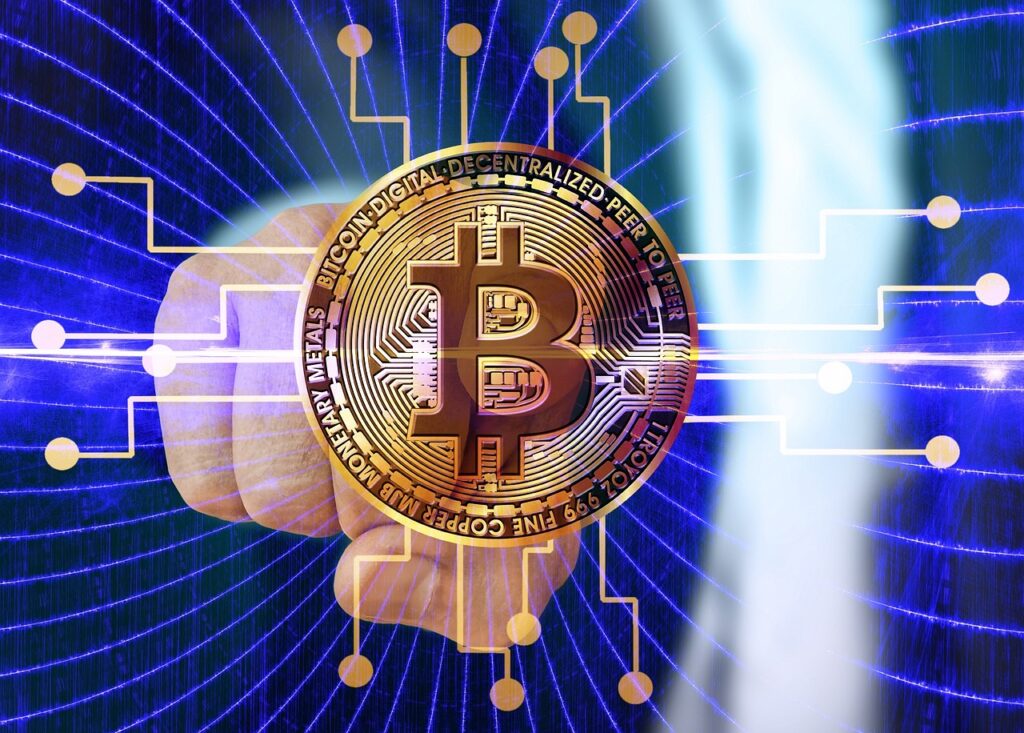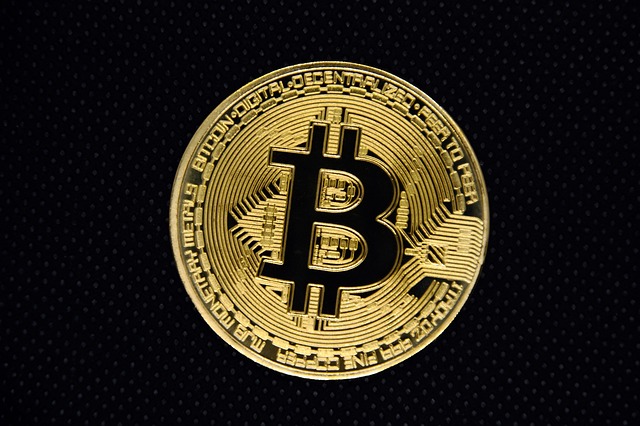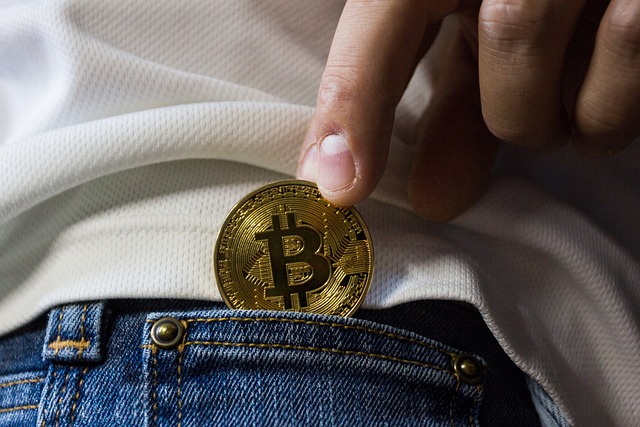Decentralized Finance Benefits for Businesses and Individuals
Decentralized Finance Benefits for Businesses and Individuals

Understanding the Basics of DeFi: A Simplified Explanation
Decentralized Finance, commonly known as DeFi, has become one of the hottest topics in the financial world. But what exactly is DeFi? In simple terms, DeFi refers to a financial system that operates on a decentralized network, typically built on blockchain technology. Unlike traditional finance, which relies heavily on centralized institutions like banks, DeFi aims to remove intermediaries and create a more open and inclusive financial ecosystem.
One of the key characteristics of DeFi is the use of smart contracts, which are self-executing agreements that run on the blockchain. These smart contracts enable people to interact and transact directly with each other, without the need for a middleman. This not only increases efficiency and reduces costs, but also ensures transparency and security in financial transactions. With DeFi, individuals can access a wide range of financial services like lending, borrowing, trading, and investing, all in a decentralized and permissionless manner.
• DeFi operates on a decentralized network, typically built on blockchain technology.
• Unlike traditional finance, DeFi aims to remove intermediaries and create a more open and inclusive financial ecosystem.
• Smart contracts are self-executing agreements that run on the blockchain in DeFi.
• Smart contracts enable direct interaction and transactions between individuals without the need for a middleman.
• This increases efficiency, reduces costs, and ensures transparency and security in financial transactions.
• DeFi allows individuals to access various financial services like lending, borrowing, trading, and investing in a decentralized manner.
How DeFi Empowers Businesses to Access Funding Without Traditional Institutions
DeFi, short for Decentralized Finance, is revolutionizing the way businesses access funding. Traditionally, businesses had to rely on traditional financial institutions like banks to secure loans or investments. However, DeFi eliminates the need for intermediaries by leveraging blockchain technology and smart contracts. This allows businesses to directly interact with lenders or investors on a decentralized platform, making the process faster, more efficient, and less costly.
One of the key ways DeFi empowers businesses is through decentralized lending platforms. These platforms connect borrowers and lenders directly, removing the need for a middleman. As a result, businesses can access funding from a global pool of lenders who are willing to provide loans based on predetermined terms set by smart contracts. This opens up opportunities for businesses of all sizes, including small and medium enterprises, to secure funding without the usual barriers and bureaucracy associated with traditional financial institutions. And the best part? The entire process is transparent, secure, and accessible to anyone with an internet connection. Through DeFi, businesses can now access the funding they need to grow and expand their operations, without being limited by geographical boundaries or reliant on traditional institutions.
Exploring the Potential of DeFi in Streamlining Cross-Border Transactions
Cross-border transactions have always been an area of concern for businesses and individuals alike. The traditional banking system often poses challenges such as high fees, slow processing times, and lack of transparency. However, DeFi, or decentralized finance, has emerged as a potential solution to streamline cross-border transactions.
One of the key advantages of DeFi is its ability to eliminate intermediaries, allowing for direct peer-to-peer transactions. By leveraging blockchain technology and smart contracts, DeFi platforms enable parties to transact with each other seamlessly, without the need for traditional financial institutions. This not only reduces costs associated with intermediaries but also accelerates the transfer process, leading to faster cross-border transactions. Additionally, DeFi ensures transparency by providing real-time updates and access to transaction history, thus enhancing trust and reducing the risk of fraud. With these benefits, DeFi presents a promising avenue for businesses and individuals looking to streamline their cross-border transactions.
The Role of Smart Contracts in Enabling Secure and Transparent Financial Interactions
Smart contracts play a crucial role in facilitating secure and transparent financial interactions in the world of DeFi. By utilizing computer code, these contracts automate and enforce the terms of an agreement between parties, eliminating the need for intermediaries and reducing the risk of fraud or manipulation. This automated and decentralized approach enables participants to transact with greater trust and confidence.
One of the key benefits of smart contracts is their ability to ensure transparency. Unlike traditional financial transactions, where information may be hidden or subject to manipulation, smart contracts operate on a public blockchain, making all transaction details visible to anyone on the network. This transparency not only enhances security by allowing participants to independently verify the integrity of transactions, but it also fosters trust among users, as they have access to the same information and can hold each other accountable. With smart contracts, financial interactions become more transparent, resulting in a more equitable and efficient financial system.
DeFi’s Impact on Financial Inclusion: Bridging the Gap for the Unbanked
DeFi, or decentralized finance, has emerged as a powerful tool in bridging the gap for the unbanked population. With traditional banking services often inaccessible or unaffordable for many individuals, especially in developing countries, DeFi provides a decentralized alternative that allows people to access financial services without the need for a traditional bank account.
One of the key ways DeFi is empowering financial inclusion is through its permissionless nature.

Leveraging DeFi for Efficient and Cost-Effective Payments and Remittances
DeFi, also known as decentralized finance, has emerged as a game-changer in the world of payments and remittances, offering efficient and cost-effective solutions for businesses and individuals alike. By leveraging blockchain technology and smart contracts, DeFi eliminates the need for intermediaries, such as banks or payment processors, allowing for direct peer-to-peer transactions.
One of the key benefits of utilizing DeFi for payments and remittances is the significant reduction in costs. Traditional financial institutions often impose high fees and commissions for processing cross-border transactions or remittances. With DeFi, these fees can be minimized or completely eliminated, making it a more affordable option for businesses and individuals looking to send or receive payments globally. Moreover, the absence of intermediaries streamlines the process, ensuring faster transaction times and eliminating unnecessary delays. Whether it’s a small business looking to expand its reach internationally or an individual sending money back home to their family, DeFi offers a cost-effective and efficient solution for all.
The Benefits of DeFi in Reducing Middleman Costs and Enhancing Profitability
Decentralized Finance (DeFi) has emerged as a game-changer in the finance industry, offering numerous benefits in reducing middleman costs and enhancing profitability. With traditional financial systems, intermediaries such as banks and payment processors often impose hefty fees on transactions, cutting into the profits of businesses. However, DeFi eliminates the need for intermediaries by utilizing blockchain technology and smart contracts, allowing for peer-to-peer transactions. As a result, businesses can bypass the middlemen and significantly cut down on transaction costs, ultimately increasing their bottom line.
In addition to reducing costs, DeFi also provides businesses with enhanced profitability through increased efficiency. Traditional financial systems typically involve complex processes and long waiting times, causing delays in accessing funds or completing transactions. DeFi streamlines these processes by automating them through smart contracts, enabling faster and more efficient transactions. Businesses can now access funding promptly without the need for lengthy approval processes, allowing them to capitalize on time-sensitive opportunities and improve overall profitability. Moreover, the transparency and immutability offered by DeFi’s blockchain technology also instill trust and confidence among investors, making it more likely for businesses to attract funding and further boost their profitability.
DeFi’s Potential to Revolutionize the Traditional Banking Sector
DeFi, or Decentralized Finance, has the potential to bring about a radical transformation in the traditional banking sector. With its decentralized nature, DeFi eliminates the need for intermediaries and middlemen in financial transactions. This not only streamlines the process but also increases efficiency and reduces costs for both businesses and consumers.
One of the key ways DeFi can revolutionize the traditional banking sector is by providing access to financial services for the unbanked population. In many parts of the world, people are unable to access basic banking services due to various barriers. However, with the advent of DeFi, individuals can now participate in the global financial system without relying on traditional banks. This opens up immense opportunities for financial inclusion and empowerment, allowing individuals to take control of their own finances and participate in economic activities on a global scale.
Mitigating Risks in DeFi: Best Practices for Individuals and Businesses
While DeFi offers numerous opportunities for individuals and businesses, it is important to understand and mitigate the associated risks. One of the best practices for individuals looking to engage with DeFi is to conduct thorough research before investing their funds. This means understanding the different DeFi protocols, their track records, and the potential risks involved. By gaining a comprehensive understanding of the projects and platforms they choose to invest in, individuals can make more informed decisions and reduce the likelihood of falling victim to fraudulent schemes or scams.
Another crucial aspect of mitigating risks in DeFi is maintaining strong security practices. Individuals should prioritize the security of their digital wallets and passwords, ensuring they are stored in a safe and encrypted manner. It is also advisable to use hardware wallets for added security. Additionally, individuals should be cautious of phishing attacks and carefully scrutinize any links or emails received related to their DeFi investments. By adopting these best practices, individuals can significantly reduce their exposure to potential risks and protect their funds in the evolving world of DeFi.
Future Opportunities and Challenges in the World of DeFi
The world of decentralized finance (DeFi) presents exciting opportunities for the financial industry. With the potential to revolutionize traditional banking and streamline cross-border transactions, DeFi offers a decentralized, transparent, and secure alternative to traditional financial systems. As more businesses and individuals recognize the benefits of DeFi, there is a promising future ahead.
One of the key opportunities that DeFi brings is financial inclusion. By eliminating the need for intermediaries, DeFi allows individuals who are unbanked or underbanked to access financial services easily. This has the potential to bridge the gap between the rich and the poor, offering equal opportunities for economic growth and empowerment.

However, along with the opportunities, there are also several challenges that need to be addressed in the world of DeFi. One of the main challenges is regulatory compliance. As DeFi operates outside of traditional financial institutions, it raises questions about how to regulate and ensure the security of transactions within this ecosystem. Additionally, the ever-evolving nature of DeFi protocols poses a challenge in terms of keeping up with the rapidly changing technology and developing industry standards.

What is DeFi?
DeFi stands for Decentralized Finance, which refers to a system that allows individuals to access financial services without the need for traditional intermediaries like banks.
How does DeFi empower businesses to access funding?
DeFi platforms enable businesses to access funding through decentralized lending and borrowing protocols, allowing them to secure loans without the need for traditional institutions.
Can DeFi streamline cross-border transactions?
Absolutely! DeFi has the potential to make cross-border transactions faster and cheaper by eliminating the need for intermediaries and reducing transaction fees.
What role do smart contracts play in DeFi?
Smart contracts enable secure and transparent financial interactions in DeFi. They are self-executing contracts with predefined rules, ensuring that transactions are carried out exactly as agreed upon.
How does DeFi impact financial inclusion?
DeFi is bridging the gap for the unbanked population by providing them with access to financial services. It allows them to participate in the global economy and manage their finances without relying on traditional banking systems.
How can DeFi be leveraged for efficient payments and remittances?
DeFi enables efficient payments and remittances by eliminating the need for intermediaries and reducing transaction costs. It allows for faster and cheaper cross-border transfers of funds.
What are the benefits of DeFi in reducing middleman costs?
DeFi eliminates the need for intermediaries like banks, which reduces transaction fees and middleman costs. This can lead to higher profitability for businesses and lower costs for individuals.
Can DeFi revolutionize the traditional banking sector?
DeFi has the potential to revolutionize the traditional banking sector by providing more accessible and inclusive financial services. It challenges the existing centralized banking system and promotes decentralization.
How can risks be mitigated in DeFi?
Individuals and businesses can mitigate risks in DeFi by following best practices such as conducting thorough research, using reputable platforms, understanding the smart contracts involved, and diversifying their investments.
What future opportunities and challenges lie ahead for DeFi?
The future of DeFi holds immense potential for innovation and growth. However, challenges such as regulatory concerns, scalability issues, and security risks need to be addressed to fully realize its benefits.
Todays Featured Product:
Buy, exchange and grow your crypto securely with a Ledger hardware wallet, combined with the Ledger Live app. It’s never been easier to keep your crypto safe and accessible. Buy direct from Ledger.com and get todays Special Offers Here.




